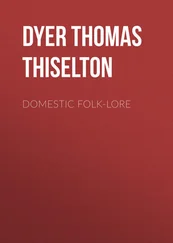Thomas Dyer - The Ghost World
Здесь есть возможность читать онлайн «Thomas Dyer - The Ghost World» — ознакомительный отрывок электронной книги совершенно бесплатно, а после прочтения отрывка купить полную версию. В некоторых случаях можно слушать аудио, скачать через торрент в формате fb2 и присутствует краткое содержание. Жанр: foreign_antique, foreign_prose, на английском языке. Описание произведения, (предисловие) а так же отзывы посетителей доступны на портале библиотеки ЛибКат.
- Название:The Ghost World
- Автор:
- Жанр:
- Год:неизвестен
- ISBN:нет данных
- Рейтинг книги:5 / 5. Голосов: 1
-
Избранное:Добавить в избранное
- Отзывы:
-
Ваша оценка:
- 100
- 1
- 2
- 3
- 4
- 5
The Ghost World: краткое содержание, описание и аннотация
Предлагаем к чтению аннотацию, описание, краткое содержание или предисловие (зависит от того, что написал сам автор книги «The Ghost World»). Если вы не нашли необходимую информацию о книге — напишите в комментариях, мы постараемся отыскать её.
The Ghost World — читать онлайн ознакомительный отрывок
Ниже представлен текст книги, разбитый по страницам. Система сохранения места последней прочитанной страницы, позволяет с удобством читать онлайн бесплатно книгу «The Ghost World», без необходимости каждый раз заново искать на чём Вы остановились. Поставьте закладку, и сможете в любой момент перейти на страницу, на которой закончили чтение.
Интервал:
Закладка:
The spirits of suicides wander, and hence cross-roads in various parts of the country are oftentimes avoided after dark, on account of being haunted by headless and other uncanny apparitions. The same belief exists abroad. The Sioux are of opinion that suicide is punished in the land of spirits by the ghosts being doomed for ever to drag the tree on which they hang themselves; and for this reason they always suspend themselves to as small a tree as can possibly sustain their weight.
With the Chinese the souls of suicides are specially obnoxious, and they consider that the very worst penalty that can befall a soul is the sight of its former surroundings. Thus, it is supposed that, in the case of the wicked man, ‘they only see their homes as if they were near them; they see their last wishes disregarded, everything upside down, their substance squandered, strangers possess the old estate; in their misery the dead man’s family curse him, his children become corrupt, land is gone, the wife sees her husband tortured, the husband sees his wife stricken down with mortal disease; even friends forget, but some, perhaps, for the sake of bygone times, may stroke the coffin and let fall a tear, departing with a cold smile.’ 62 62 Countess Evelyn Martinengo-Cesaresco, 1886, Essays in the Study of Folk-songs , p. 8.
But, as already noticed, the same idea, in a measure, extends to the West, for in this country it has long been a popular belief that the ghosts of the wicked are forced to periodically rehearse their sinful acts. Thus, the murderer’s ghost is seen in vain trying to wash out the indelible blood-stains, and the thief is supposed to be continually counting and recounting the money which came into his possession through dishonest means. The ghost is dogged and confronted with the hideousness of his iniquities, and the young woman who slew her lover in a fit of jealous passion is seen, in an agonised expression, holding the fatal weapon. But such unhappy spirits have, in most cases, been put to silence by being laid, instances of which are given elsewhere; and in other cases they have finally disappeared with the demolition of certain houses which for years they may have tenanted.
On the other hand, the spirits of the good are said sometimes to return to earth for the purpose of either succouring the innocent, or avenging the guilty.
‘Those who come again to punish their friends’ wrongs,’ writes Miss Jackson, in her ‘Shropshire Folk-lore’ (p. 119), ‘generally appear exactly as in life, unchanged in form or character. A certain well-to-do man who lived in the west of Shropshire within living memory, left his landed property to his nephew, and a considerable fortune to his two illegitimate daughters, the children of his housekeeper. Their mother, well provided for, was at his death turned adrift by the nephew. Her daughters, however, continued to live in their old home with their cousin. A maid-servant who entered the family shortly after (and who is our informant) noticed an elderly man often walking in the garden in broad daylight, dressed in old-fashioned clothes, with breeches and white stockings. He never spoke, and never entered the house, though he always went towards it. Asking who he was, she was coolly told, “Oh, that is only our old father!” No annoyance seems to have been caused by the poor old ghost, with one exception, that the clothes were every night stripped off the bed of the two unnatural daughters.’
German folk-lore tells how slain warriors rise again to help their comrades to victory, and how a mother will visit her old home to look after her injured and forsaken children, and elsewhere the same idea is extensively believed. In China, the ghosts which are animated by a sense of duty are frequently seen: at one time they seek to serve virtue in distress, and at another they aim to restore wrongfully-held treasure. Indeed, as it has been observed, ‘one of the most powerful as well as the most widely diffused of the people’s ghost stories is that which treats of the persecuted child whose mother comes out of the grave to succour him.’ 63 63 Study of Folk-songs , p. 2.
And there perhaps can be no more gracious privilege allotted to immortal spirits than that of beholding those beloved of them in mortal life:
I am still near,
Watching the smiles I prized on earth,
Your converse mild, your blameless mirth. 64 64 Study of Folk-songs , p. 8.
As it has been observed, no oblivious draught has been given the departed soul, but the remembrance of its earthly doings cleaves to it, and this is why ghosts are always glad to see the places frequented by them while on earth. In Galicia, directly after a man’s burial, his spirit takes to wandering by nights about the old home, and watching that no evil befalls his heirs. 65 65 Ralston’s Songs of the Russian People , p. 121.
Occasionally the spirit returns to fulfil a promise as in compacts, to which reference is made in another chapter. The reappearance of a lover, ‘in whose absence his beloved has died, is a subject that has been made use of by the folk-poets of every country, and nothing,’ it is added, ‘can be more characteristic of the nationalities to which they belong than the divergences which mark their treatment of it.’ 66 66 Study of Folk-songs , p. 21.
Another cause of ghosts wandering is founded upon a superstition as to the interchange of love-tokens, an illustration of which we find in the old ballad of ‘William’s Ghost’:
There came a ghost to Marjorie’s door,
Wi’ many a grievous maen,
And aye he tirl’d at the pin,
But answer made she nane.
‘Oh, sweet Marjorie! oh, dear Marjorie!
For faith and charitie,
Give me my faith and troth again,
That I gied once to thee.’
‘Thy faith and troth I’ll ne’er gie thee,
Nor yet shall our true love twin,
Till you tak’ me to your ain ha’ house,
And wed me wi’ a ring.’
‘My house is but yon lonesome grave,
Afar out o’er yon lee,
And it is but my spirit, Marjorie,
That’s speaking unto thee.’ 67 67 Folk-lore Record , 1879, iii. pp. 111, 112.
She followed the spirit to the grave, where it lay down and confessed that William had betrayed three maidens whom he had promised to marry, and in consequence of this misdemeanour he could not rest in his grave until she released him of his vows to marry her. On learning this, Marjorie at once released him.
Then she’d taen up her white, white hand,
And struck him on the breist,
Saying, ‘Have ye again your faith and troth,
And I wish your soul good rest.’
In another ballad, ‘Clerk Sanders,’ there is a further illustration of the same belief. The instances, says Mr. Napier, differ, but ‘the probability is that the ballad quoted above and “Clerk Sanders” are both founded on the same story. Clerk Sanders was the son of an earl, who courted the king’s daughter, Lady Margaret. They loved each other even in the modern sense of loving too well. Margaret had seven brothers, who suspected an intrigue, and they came upon them together in bed and killed Clerk Sanders, whose ghost soon after came to Margaret’s window. The ballad, which contains much curious folk-lore, runs thus: 68 68 Folk-lore Record , 1879, iii. pp. 111, 112.
‘Oh! are ye sleeping, Margaret?’ he says,
‘Or are ye waking presentlie?
Give me my faith and troth again,
I wot, true love, I gied to thee.
‘I canna rest, Margaret,’ he says,
‘Down in the grave where I must be,
Till ye give me my faith and troth again,
I wot, true love, I gied to thee.’
Интервал:
Закладка:
Похожие книги на «The Ghost World»
Представляем Вашему вниманию похожие книги на «The Ghost World» списком для выбора. Мы отобрали схожую по названию и смыслу литературу в надежде предоставить читателям больше вариантов отыскать новые, интересные, ещё непрочитанные произведения.
Обсуждение, отзывы о книге «The Ghost World» и просто собственные мнения читателей. Оставьте ваши комментарии, напишите, что Вы думаете о произведении, его смысле или главных героях. Укажите что конкретно понравилось, а что нет, и почему Вы так считаете.












